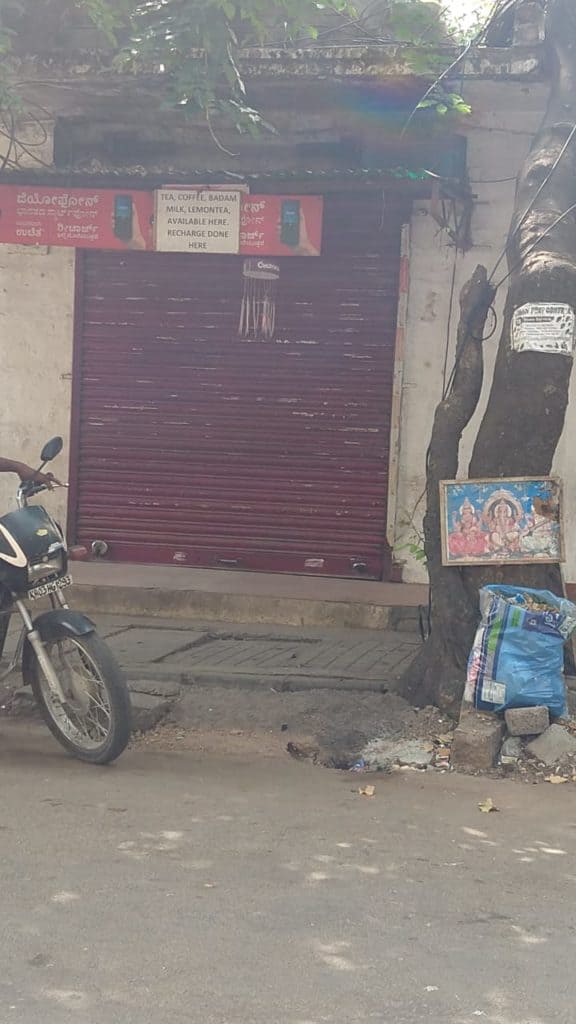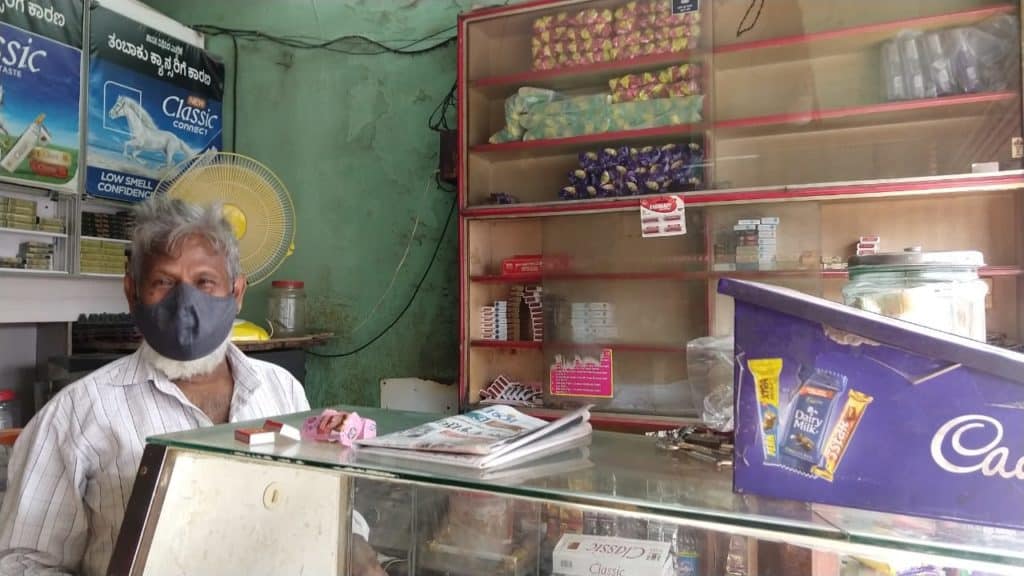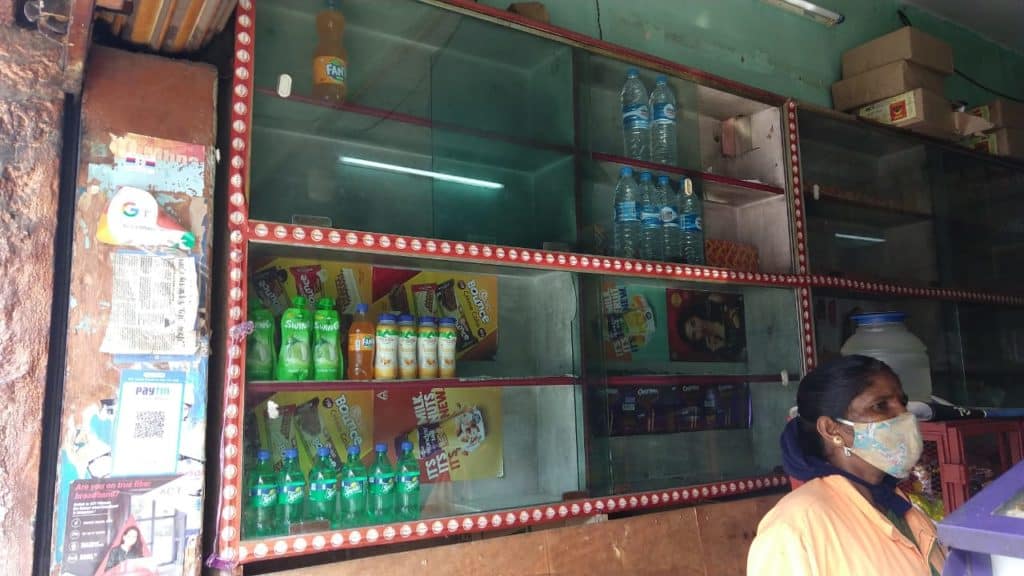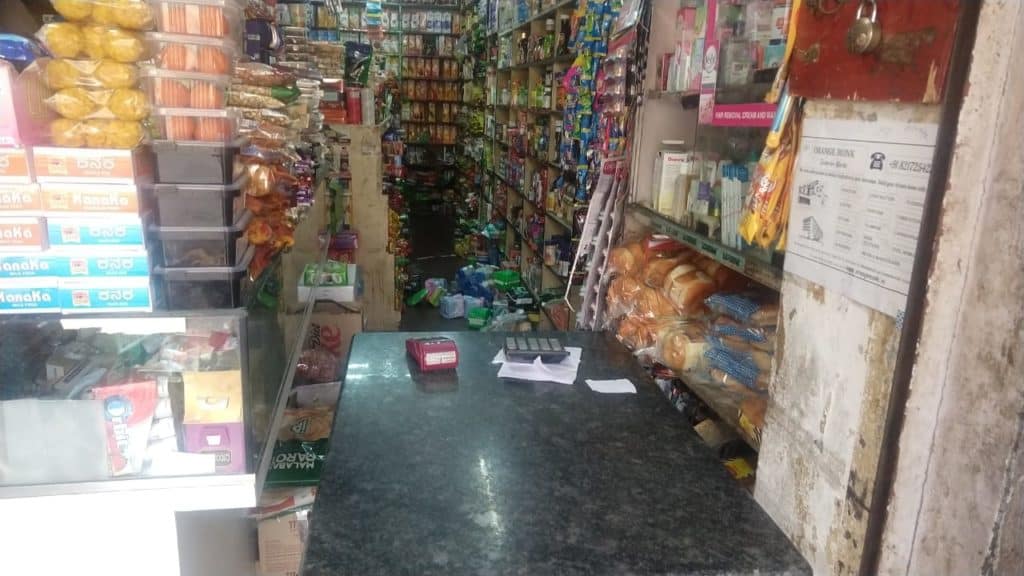As another lockdown began in Bengaluru, the entire day’s hustle and bustle found itself compressed into the four-hour window from 6 am to 10 am. That’s when even the most paranoid of folks leave their homes to buy everything from chicken to cigarettes to chat masala. Some are taken aback when asked to pay Rs. 100 for 5-odd cigarettes while others sigh as they queue up to buy beer at 7:30 in the morning.
Read More: Will your neighbourhood grocery store recover from COVID lockdown?
My daily morning ritual was a walk to the main road, to buy newspaper and maybe a cup of coffee. I would take a Yulu Miracle in case I woke up late. As I was particularly bad at pushing and pulling the rusty stand, the shop-owner would laugh and help me park.
When the close-down began, they started opening their shop later than usual and I had to borderline steal the newspaper from the bundle left outside the shop. When asked by a newspaper delivery person if I would like it delivered instead, I politely refused stating that I enjoy my precious morning walk.
One morning, there was no bundle. And the next morning too. After asking around, I gathered that the man who used to help me park had tested positive and the shop was closed indefinitely. I tried asking around if he has recovered now, but no one has a clue.

Another shop that I frequent for a hot cup of coffee is run by this elderly couple – Abdul and Tahani. After I told Tahani that I am a journalist, she used to ask me every day if the lockdown would happen and now she asks if it will be extended. I disappoint her by revealing that I am a mere intern and possess no inside knowledge of the Karnataka government’s closed-door meetings.
With another COVID-19 lockdown, these small grocery shops are bearing the brunt of the restrictions. For them, neither stay-at-home nor work-from-home are options.
Debts to repay
Faiyaz and Sakeena who run a small 34-year-old grocery and vegetable store, worry about the rent and repayment of the Rs 30,000 loan, borrowed during the 2020 lockdown (Only Rs 5000 is repaid so far). They have to make a weekly payment of Rs. 3000 besides the monthly rent of Rs. 15,000. Only what they earn over and above Rs. 27,000, is left for them to make a living.
“We barely break even every month. We had Rs. 25,000 savings last year, all of which was gone during the lockdown. We will most probably have to raise another loan of Rs. 40,000 to pay for our son’s education and meet expenses now that this lockdown is happening,” says Faiyaz. Their revenue has already gone down from Rs. 3000 – 4000 per day to Rs. 1000 – 2000.
Sakeena has started stitching to help out with the house, which is ironic because she left her job as a garment worker five years ago to help out with the store. She complains that she cannot even go out and do garment work again because the factory she worked in has shut down.
Enforcer’s mood
Abdul Narayan D’Souza — that’s his preferred pseudonym — runs a small shop that also sells cigarettes and paan. In the lockdown, however, people come to his place only for cigarettes and pan.

Asked about the lockdown’s impact on his 4-year-old shop, he says: “The mutton-fish eaters will make do with dal-rice-sambar now.” D’Souza says he has cut down on his food expenses. Thanks to a sympathetic landlord, he got a 50% waiver on his shop rent of Rs 12,000.
Though he is operating within the permitted hours, D’Souza keeps an eye out for the police. He’s ever ready to drag his shelf inside and pull his shutters down. “It all depends on their mood, they tell me that such items … cigarettes and all … are not allowed during lockdown,” he says. He has, in fact, stopped serving tea and coffee as people started gathering in groups outside his shop, inviting trouble from the police.
Offline woes
Kirana stores always opposed e-commerce on the grounds that the latter would render traditional stores unviable. The lockdown appears to have made those fear real for grocery store keepers. While e-commerce platforms operate throughout the day, grocery shops are allowed to stay open only between 6 am and 10 am.
Store owners fear that customers would rather opt for online shopping that wake up to run to the provision store in the neighbourhood. Stores cannot tie-up with an online delivery partner either, as they have to shut shop by 10 am and that doesn’t allow them to pack goods for online delivery.
Even though the May 7 order allows 24/7 online delivery of essential goods, there is no clarity on whether grocery shops can do that after 10 am. So, they shut shop at 10, fearing a penalty or punishment by the police.
On the one hand, while there are no measures to facilitate collaboration between small grocery shops and online delivery platforms, the lockdown relaxations appear to be beneficial to the big online businesses. Many of the debt-ridden and rent-burdened grocery shops right in front of our houses may never reopen after the lockdown. “If we can be allowed to stay open only for online delivery, even that would be better than closing down the shutters,” says Tahani.

B2C to B2B
One shop-owner, Anil, stays on even after 10 am. That is because he also has a Nandini milk booth attached to his store. As a Karnataka Milk Federation milk-seller, his shop is allowed to operate till 8 pm. Despite this order, Anil has had to show the official circular to policemen every time they have told him to close shop.

Interestingly, as his booth remains open even after 10 am, neighbouring shop-owners who close at 10 am, drop off their unsold milk at Anil’s. That’s their alternative and adaptation to the lockdown restrictions. B2C shops turn B2B in a matter of minutes.
Read More: Adapting to survive: Stories of repair economy workers
Anil himself opened his store six months ago, leaving his job with an airlines last year. Abdul, who ran a tea stall at the Banaswadi Railway station for 11 years, had to wind up because trains stopped during the first wave. He suffered a heart-attack because of the stress of unemployment. It was after recovery that he started a grocery shop, hoping that the business of ration will be immune to the pandemic.
Udhyam Vyapaar, an organisation that works with micro-entrepreneurs to uplift their income, saw this happening last year too. Mehvash Arslan, a member, said, “In case of istriwallahs, which is not considered an essential service, they actually used the money we gave them (as a direct cash transfer) to buy and sell vegetables, as that was an essential service. What happened with a lot of tea-sellers was that they were typically positioned in tech parks or in railway stations where there is a lot of footfall, and all of these have shut down. So, they have lost a lot of customers. They either had to relocate or they had to figure out alternate ways of earning money. A lot of them started selling sanitisers, masks, etc.”
Even as they try to eke out a living, the fear of the virus looms in the backdrop. Abdul’s words sum up the anxiety of uncertainty and vulnerability of their existence: “It is poverty that is worrying people more than the virus. The biggest fear is that if something happens to me, I will not be able to go to a hospital. Who will pay Rs 7-8 lakh? Even the ambulance’s cost is not less than Rs. 5000.”
(All names have been changed to preserve anonymity)
Hi Juhi,
It is a very well-written piece. I have written an article on the community of informal nano-entrepreneurs like the street-side vendors. Can you share your email address with me where I can send it to you? If you like it then it can be published.